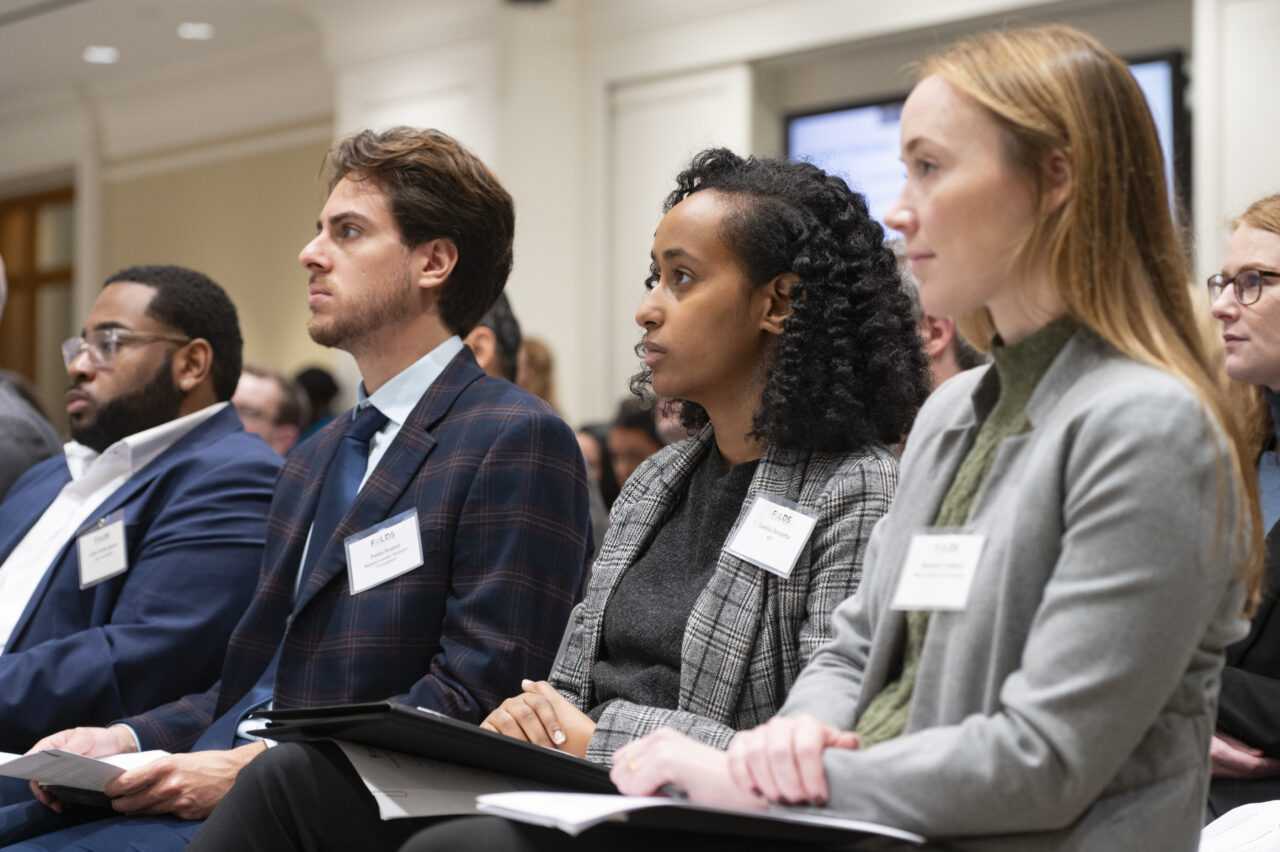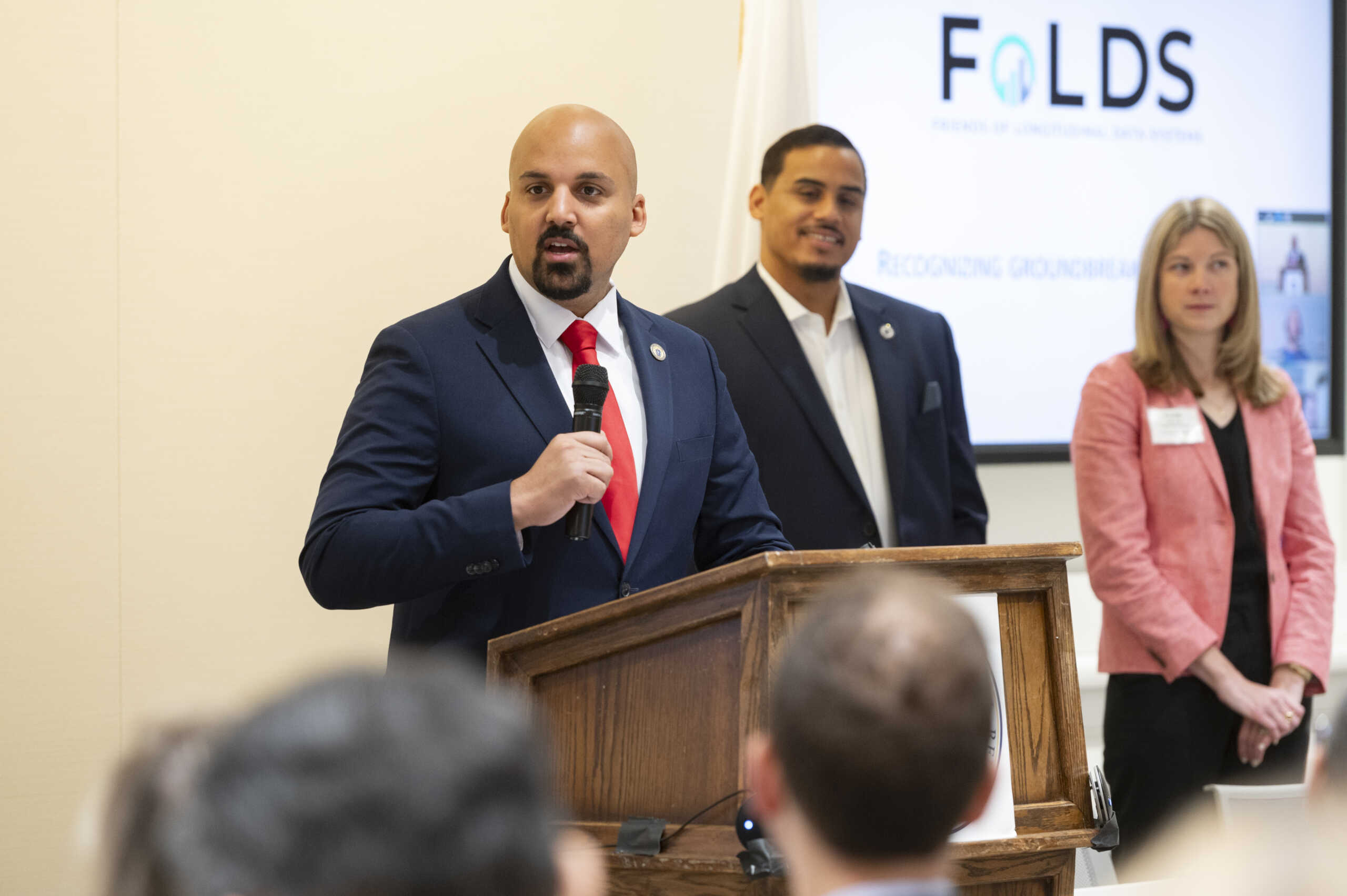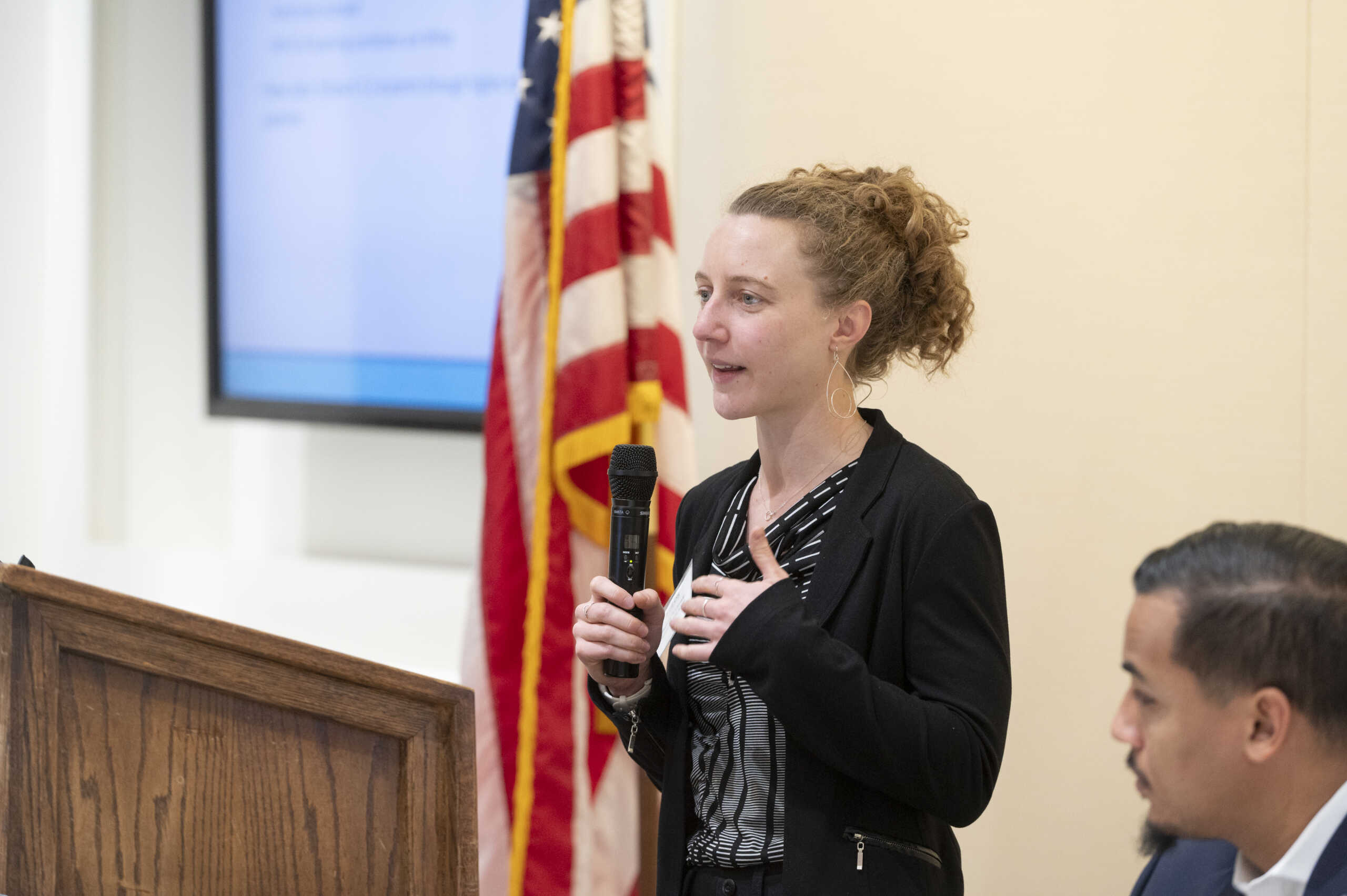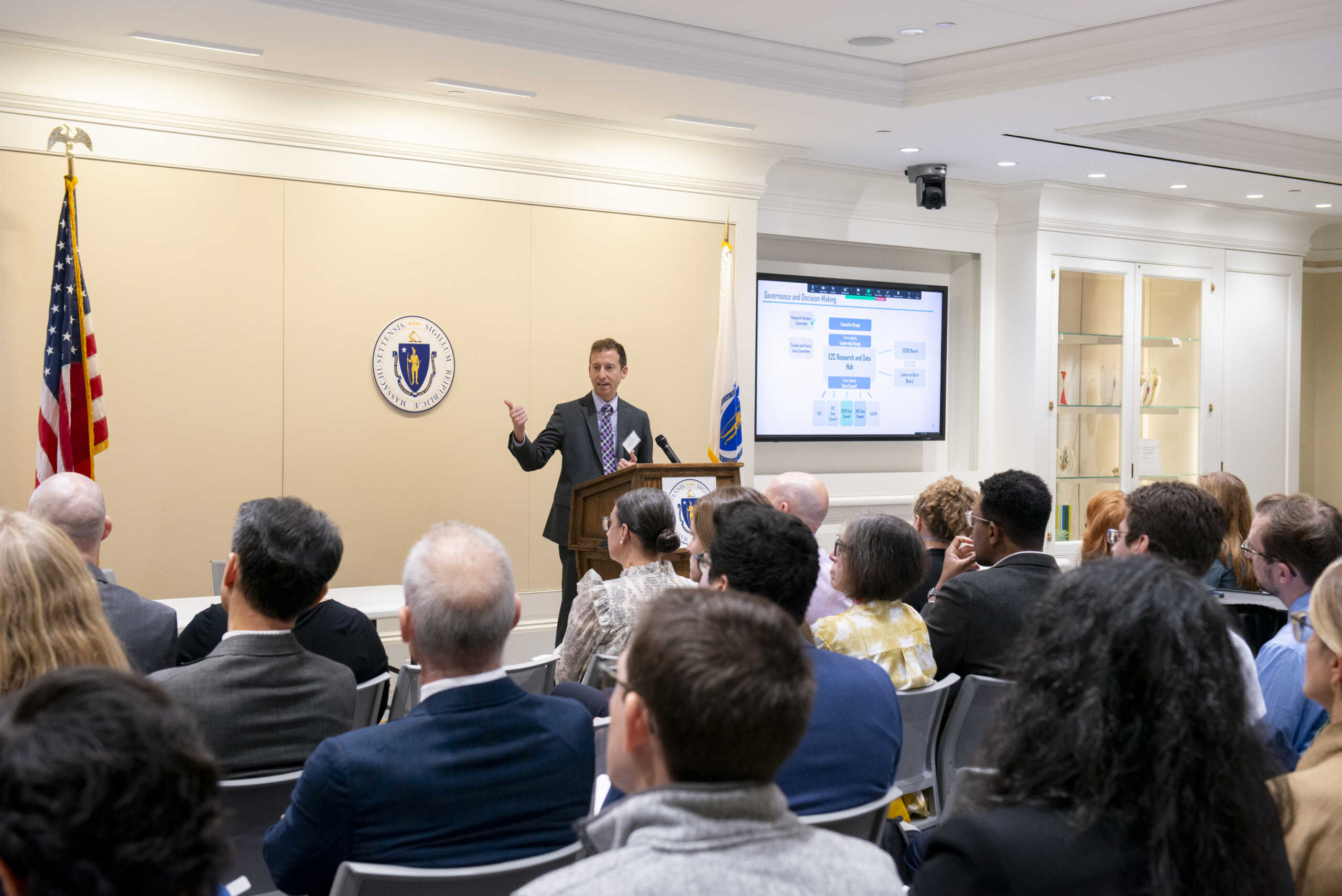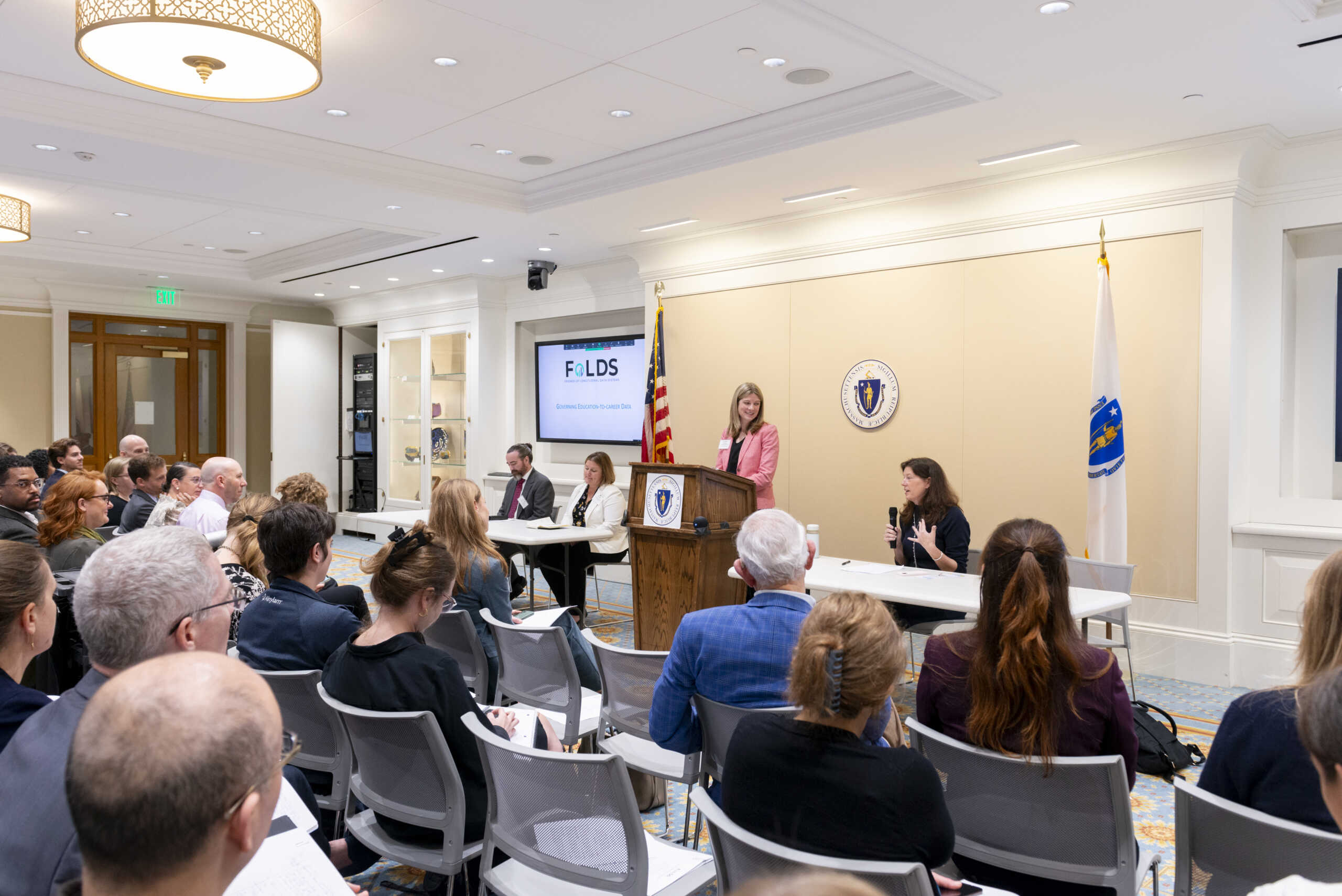Together with the Workforce Solutions Group, MassINC hosted the Second Annual Friends of Longitudinal Data Systems (FOLDS) Fall Symposium at the State House on Wednesday, October 18th. The forum brought a diverse group of leaders together to talk about how Massachusetts can build on a decade of federal investment in our data quality and technology to provide policymakers, practitioners, and the public with a far more refined understanding of cradle-to-career pathways.
With academic researchers, education and workforce advocates, business leaders, officials from a variety of state agencies, and legislators packed into Room 428, Senator Pavel Payano offered welcoming remarks to begin the day. Flanked by Rep. Kate Lipper-Garabedian and Rep. Manny Cruz, cosponsors of An Act Establishing an Education-to-Career Data Center (H.530/S.343), he spoke about how vital it is to do all that we can to provide policymakers with good data, drawing on his personal experience as a Lawrence School Committee member.
Taking the podium to lead a review of findings from new studies, Rep. Manny Cruz echoed similar perspectives from his time on the Salem School Committee.
Melanie Rucinski, a doctoral student at the Harvard Kennedy School, presented on her analysis of racial disparities in the educator workforce pipeline. With data following students from K-12 through higher education and into the state’s teaching corps, she showed how racial and ethnic disparities accumulate far earlier in the pathway than has been previously understood.
Ben Backes, Principal Economist at AIR, shared his experience leading research efforts to examine how educator licensure impacts student achievement. With data connecting students to teachers and following their progression through K-12 and into college, he showed how educators can impact student performance in various ways. Educators who have the most impact boosting student engagement in school are not necessarily the same educators who help students get higher MCAS scores. These new findings provide a more refined understanding of how the design of teacher licensure systems can impact the quality of the state’s educator workforce.
Whitney Kozakowski, Researcher at Mathematica, Inc., provided a compelling case for the labor market benefits of attending a public four-year college in Massachusetts for low-income students and students of color. With data following students from high school to higher education and into the workforce, her research shows that students admitted to four-year public colleges earn considerably more than those who fall just short of meeting the admission requirements.
The three researchers also shared reflections on how Massachusetts’s education and workforce data compare to other states. They all affirmed that our data quality is second to none. At the same time, they lamented that it can still be difficult and time-consuming to access longitudinal datasets.
To give attendees a picture of how this cutting-edge research was possible, we then heard from Sam Ribnick, Executive Director of the Education-to-Career Research and Data Hub at the Department of Elementary and Secondary Education. Sam provided an intimate view of the data linkages that have been established across agencies to enable longitudinal research. He also outlined agency efforts currently underway to further develop these systems.
The conversation then turned to data governance legislation. Rep. Lipper-Garabedian led a discussion with three national experts who traveled to Boston for the event: Paige Kowalski, Executive Vice President, Data Quality Campaign; Sean Cottrell, Director, WestEd’s Data Integration Support Center; and Jessica Cunningham, Vice President of State Programs, Coleridge Initiative.
Repeating many of the same themes, these leaders stressed how governance legislation is vital to ensure that state investment in longitudinal data systems delivers fully on its potential. Giving examples from several states with strong governance legislation, they described how the legal framework offered by H. 430/S. 343 creates a shared understanding of how this resource will be deployed to the benefit of residents. This kind of governance legislation also establishes boundaries to protect privacy and provide accountability. They described how designating a neutral agency to maintain these systems is especially important to both guarantee that all agencies contribute fully to the system, and to ensure that the findings produced by studies are seen as impartial, and not simply a product of an agency pushing its own narrow agenda.
With the morning program complete, FOLDS members left the State House for afternoon working sessions box lunches in hand. Strategies for Children led a discussion of longitudinal data in early childhood, together with staff from the Department of Early Education and Care. Jessica Cunningham invited workforce leaders to a more in depth conversation on the state-of-the-art in workforce data and reporting systems. We were also joined by another national leader for the afternoon: Della Jenkins, Executive Director of Actionable Intelligence for Social Policy (AISP). Della provided an overview of efforts in other states to expand their longitudinal data systems beyond the education and workforce secretariats to incorporate criminal justice, health, housing, and human services data.
FoLDS members extend a big thank you to Rep. Lipper-Garabedian, Rep. Cruz, Sen. Payano and their staff—Haley Tobin, Hannah Levine, and Tom Mahoney—for making the event possible. We also offer our appreciation to Paige Kowalski, Sean Cottrell, Jessica Cunningham, Della Jenkins, Melanie Rucinski, Ben Backes, and Whitney Kozakowski.
Below you’ll find links to all of the presentations and resources shared at the fall symposium. For more on upcoming FoLDS events or to join the community, 2024 FOLDS events.
Resources:
DQC fact sheet on state governance legislation
Early Childhood Integrated Data System presentation
